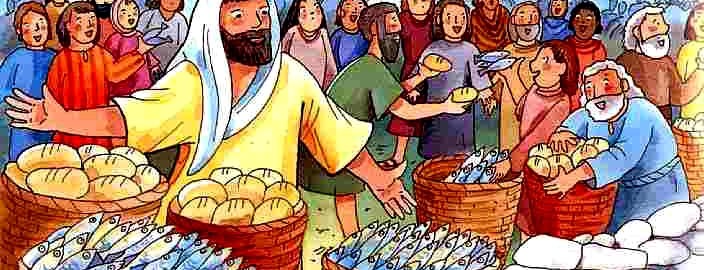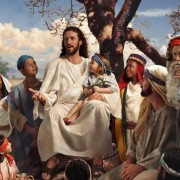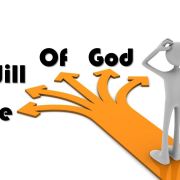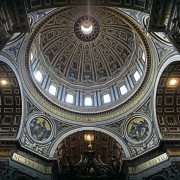The Jesus of the Gospels 1: His Miraculous Works
As some of you may be aware, I’ve been spending much time reading and researching into New Testament history, with particular regard to how Jesus Christ and the church fit into the real history of events during the life of Jesus and immediately thereafter. So I’m starting off a series of blog posts on what scholars are teaching us about him and his times. I pray that I be able to find the time to keep it up, so we may all share our thoughts on the subject. For the curious reader, much of what I write here will be my understanding of reading mostly FF Bruce, NT Wright and Scott McKnight – being globally recognized scholars in New Testament.
Disclaimer: I’m compressing books of 600 page lengths to small blog posts, so don’t take my brevity personal.
Jesus “Mighty Deeds”
A lot of us must have wondered about the miraculous deeds of Jesus Christ, and asked what the point was. Was miracles the sign that he was divine? Did he do them to grab people’s attention, or was he just an interesting magician? What lessons are to be drawn from his “mighty deeds” for our contemporary pursuit of “miracles” from all sources? To be able to understand what Jesus Christ was really doing with his “mighty works” of miracles and wonders, it is essential that we read the Bible through the lens of the people who lived at the time, and what their worldview is. If not, we simply pick up and abuse Scripture for any purpose we have, and point to texts to “support” our agenda. We can’t cover all the ground in this attempt, but let’s unveil what we can here.
A VERY SHORT Historical Picture of Jesus’s Judea
The first century during which time Jesus was born was a time of great turbulence for the Jews. Previously whiles exiled in Babylon 500 ago, their prophets had prophesied of their return to their promised land, and of God coming back to them to restore them, and to vindicate them against all their enemies who had trodden on them before. From Isaiah, Jeremiah, Ezekiel to Daniel etc., the prophecies of God’s return were rife. And yet, half a millennium later, here they were under the rule of the Romans, with the promise of God’s return not yet arrived.
Interestingly most Jews did their own calculations based on different interpretations of the prophecies especially from those of Daniel (Dan. 9 & 10) and came to the conclusion that the time of God’s salvation and return to the temple (like he did in Solomon’s time) must be close. Some were therefore prepared to wait for God himself to do what he had promised them (like the Essene communities of the time), whiles others were prepared to fight the Romans boot for boot, knowing that because the “calculated time” was close, God will bring them victory (Zealots like Simon the Zealot, Barabbas etc.). The Romans were also very ready to crush any form of resistance that will jeopardize their food (and other essentials) supply channels from Egypt, through Judea to the Roman colonies and capital (as is the case with “jeopardizing” the oil supply from the Middle East to the US today). So contrary to most people’s idea of a nice Jerusalem with Pharisees teaching people how to obey the laws of Moses so they can be “righteous”, second temple Jews were nowhere near holding hands and singing “Kumbaya”, waiting for Jesus to come and be their personal savior.
The Agenda of Jesus’ Entire Ministry
Against this backdrop we see the man named Jesus going about doing a lot of miracles. It is important to note that he wasn’t stationary, but did go about from town to town during his ministry, in an effort to make his work known every.
He is accused of driving out demons by the power of Beelzebub. Denying it, he makes a very significant statement (my emphasis).
“But if I drive out demons by the Spirit of God, then the kingdom of God has come upon you”. Mt 12:28
Jesus clearly declares that his miraculous deeds are meant to announce to them that the kingdom of God has indeed arrived amongst them. Now I want to suggest to you that the reason why Jesus Christ did all his wondrous works was as a display and inauguration of the kingdom of God which the Jews had been waiting for the last 500 years. Note he didn’t say “the kingdom of God WILL come upon you”. Contrary to modern Christian thinking, the idea that Jesus is all about going to a future “heaven” in the sky is not only non-scriptural, but has no Jewish antecedent and is rather from Platonism. But I digress, so let us delve deeper.
The gospel of Luke gives us quite a chronological account of Jesus’s life and ministry. There is a certain key in that chronology that foreshadows all that Jesus did and which was recorded in the Gospels but our reading of the Gospels have not helped us to realize it. Before Jesus Christ launched his 3 year ministry, he underwent a period of temptation and fortification in the wilderness (40 days and 40 nights, as we were all taught in Sunday school). Luke says he returned to Galilee in the power of the Spirit, and began preaching in synagogues. One of the first records of such teaching is Lk 4:16-21.
“He went to Nazareth, where he had been brought up, and on the Sabbath day he went into the synagogue, as was his custom. And he stood up to read. The scroll of the prophet Isaiah was handed to him. Unrolling it, he found the piece where it is written: ‘The Spirit of the Lord is on me, because he has anointed me to preach good news to the poor. He has sent me to proclaim freedom for the prisoners and recovery of sight for the blind, to release the oppressed, to proclaim the year of the Lord’s favor’. Then he rolled up the scroll … and he began by saying, ‘Today this scripture is fulfilled in your hearing’.”
Here, Jesus picks a messianic prophecy by Isaiah, and says to the Nazareth folks right in their face that he is the fulfillment of that scripture – such guts. And the passage he referred to (Isaiah 61:1-2) states exactly what the Messiah was supposed to be about, and therefore what Jesus ministry on earth was supposed to be about. And so everything Jesus did, including his miraculous deeds, were meant to point out to the Jews who he was – the Messiah. And he had to do it by fulfilling what was already written about him – to bring freedom to prisoners, recovery of sight to the blind, release the oppressed etc.
Miracles: A Tool in the Kingdom Declaration Toolkit
Again, let’s see what Isaiah says elsewhere about the Messiah’s coming and his kind of miraculous deeds in Is 35:5-6
“Then will the eyes of the blind be opened and the ears of the deaf unstopped. Then will the lame leap like a deer, and the mute tongue shout for joy”
So it is that he goes about doing wonders with the idea that any Jew who saw Jesus works (and in addition, listened to his parables and other statements he made) would have known that this guy was trying to show us that he was the Messiah, not just a miracle worker. And so you will notice throughout the gospels that Jesus didn’t just do miracles, but he did miracles of a particular nature. NT Wright explains it this way
“Thus from the perspective of a follower of Jesus at the time, his mighty works will have been interpreted within the context of his overall proclamation: they would be seen as signs that the kingdom of Israel’s god was indeed coming to birth. From the perspective of anyone with vested interest in the kingdom coming in different ways, or indeed in not coming at all, the same events will have appeared as dangerous and subversive, i.e. as ‘magic’.
The evidence from Qumran suggests that, in some Jewish circles at least, a maimed Jew could not be a full member of the community. In addition to the physical burden of being blind, or lame, or deaf, or dumb, such a Jew was blemished, and unable to be a full Israelite … This shows that Jesus’ healing miracles must be seen clearly as bestowing the gift of “shalom”, wholeness, to those who lacked it, bringing not only physical health, but renewed membership in the people of YHWH.
Many of the people Jesus healed came into one of these banned categories. There were blind people (Mt. 9:27-31; Mt. 12:22; Mk. 8:22), deaf and dumb (Mt 9:32-3; Lk. 11:14; Mk. 7:32), lepers (who were not only ritually excluded, but also, of course, socially ostracized i.e. Mt. 8:1-4 or Mk. 1:40-45), a woman with an issue of blood, which rendered not only her, but anything she sat on or anyone or anything she touched, unclean (Mt. 9:20-22 or Mk. 5:24-34), a crippled woman ‘whom Satan bound for eighteen years’ (Lk. 13:10) … So too his miracles performed for Gentiles (Mt 8:5-13; Mt 15:21-28) and for a Samaritan (Lk. 17:11-19), bear witness to the inclusion within the people of YHWH of those who had formerly been outside.
The effect of these cures, therefore, was not merely to bring physical healing … but to reconstitute those healed as members of the people of Israel’s God. In other words, these healings at the deepest level of understanding would be seen as part of his total ministry, part of that open welcome which went with the inauguration of the kingdom and part of his subversive work which was likely to get him into trouble.
… Other signs of covenant renewal include the multiplication of the bread in the wilderness, and the stilling of the storms, both carrying overtones of the exodus”. (NT Wright, Jesus and the Victory of God)
And so, just imagine you lived in Judea at the time of Jesus. There were about 6 or so religious festivals each year, and every Jew was supposed to partake of them (whether living in Judea or in another country). For the particular festival of Passover, the population of Jerusalem could swell from about 50,000 to about 500,000 people (just think of Saudi Arabia’s Mecca and you’ll get the picture). And some of these festivals are not 1 day holidays, but whose celebration could span days, including the preparation up to those festivals. Some of them required the provision of animals for sacrifice for each person/family’s sins or as thanksgiving. This required money that poor people (and those poor by inability to work because of sickness) didn’t have. Any study of NT history shows no doubt that today’s poverty levels have nothing on the poverty levels amongst first century Jews of Jesus day. Then there was the regular weekly attendances that most people make to the temple, as well as going there to give one’s tithe when it was due. Gentiles (and Samaritans) who lived in Judea and wanted to serve the god of Israel as well could only enter the court of the Gentiles, and no further. The temple and religious activities were central to everything about being a Jew. A person’s inability to be an active partaker in the religious lives of Jews at the time due to any uncleanliness/deformity/nationality meant that one did not really feel a member of the community.
To a Jew who knows very well the story of how God fed them with manna during the exodus from Egypt to Canaan, 1) feeding 5000 people and another 4000 people and 2) doing so in the wilderness, looked very much like God repeating a miracle he’d done before. Calming the storm, again showed a person who had power to control the waters, just like God did during the exodus by splitting the Red Sea in two.
All these miracles were meant to speak to a people who already knew what prophets like Isaiah had already spoken of the coming Messiah and his kingdom in places like chapter 35, 61 and a myriad other such places.
Given this picture …
I began then to ask questions of our modern day attitude to miracles, and my personal evaluation leads me to think that we haven’t understood their purpose, and are simply abusing the examples of Jesus as a means to pursue a different (sometimes parochial, sometimes ignorant) agenda. I can therefore understand why Peter and John will bring healing to the lame man at the temple gates, who will never be able to enter it to feel like he was part of God’s people. The kingdom of God had arrived, and Peter and John’s work enabled him to partake of it. These and many more miraculous events (at least of the Gospels and Acts) seem clearer to me now.
But in the same way, our pursuit for miracles and our means of dishing them out today begins to look questionable. When we organize events and call people to come and receive “miracle”, what kind of “miracles” are we talking about? Miracles for the unmarried to be married? Miracles for people to get visas to go abroad? Miracles for “success”? How does not having any of these prevent us from being part of the kingdom of God, of being counted and taking an active position amongst the people of God? And even when we are healing sicknesses, how does that again display the kingdom of God’s defeat of sin and evil, when it only serves to display the “power” of the supposed “man of God”?
How does a person with the supposed “gift of healing” tell us that unless we come to their church, we may not receive a healing, when the Divine Healer didn’t confine his work to a church? That unless we “sow a seed”, we cannot receive a “miracle” from God, when even the premise of “miracle” itself is actually flawed?
Do you also think this understanding of the miraculous works of Jesus throws more light or raises more questions for us today, 2000 years later?











Leave a Reply
Want to join the discussion?Feel free to contribute!